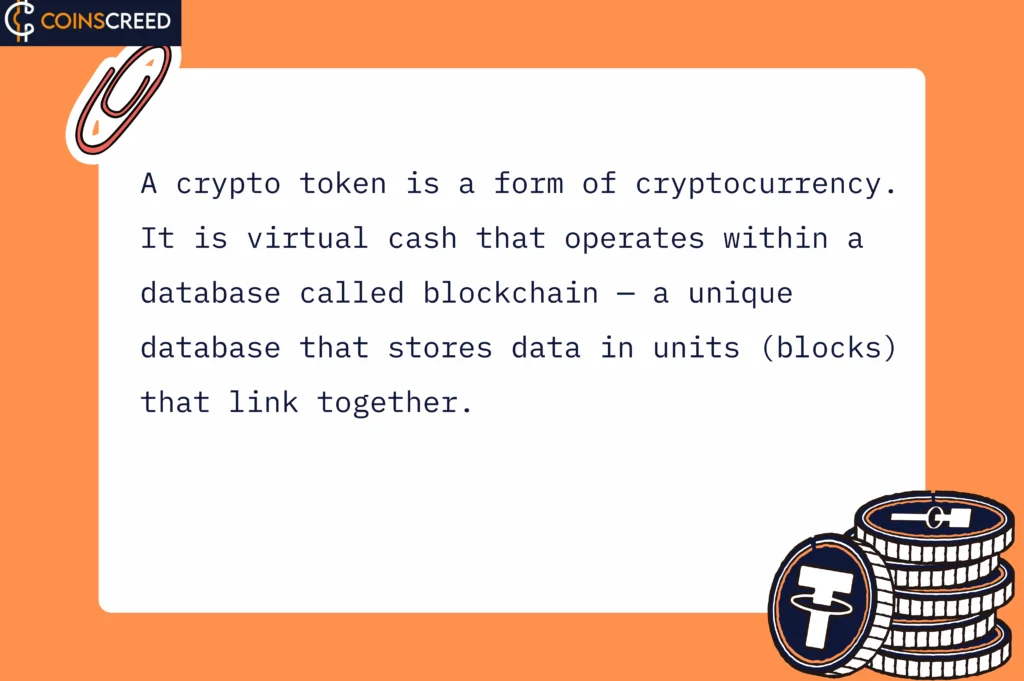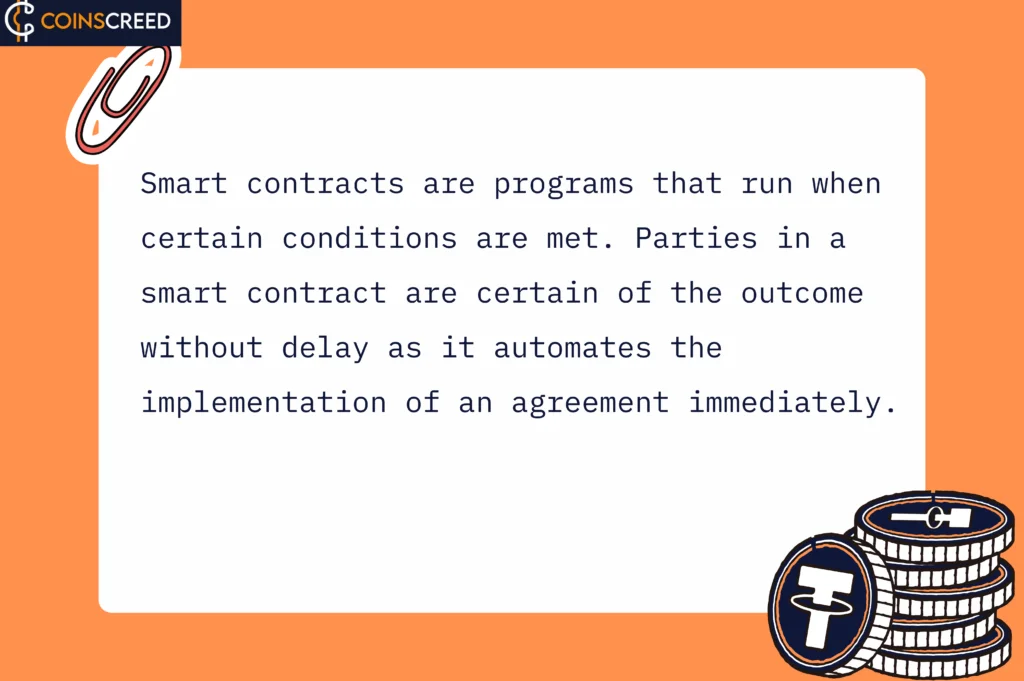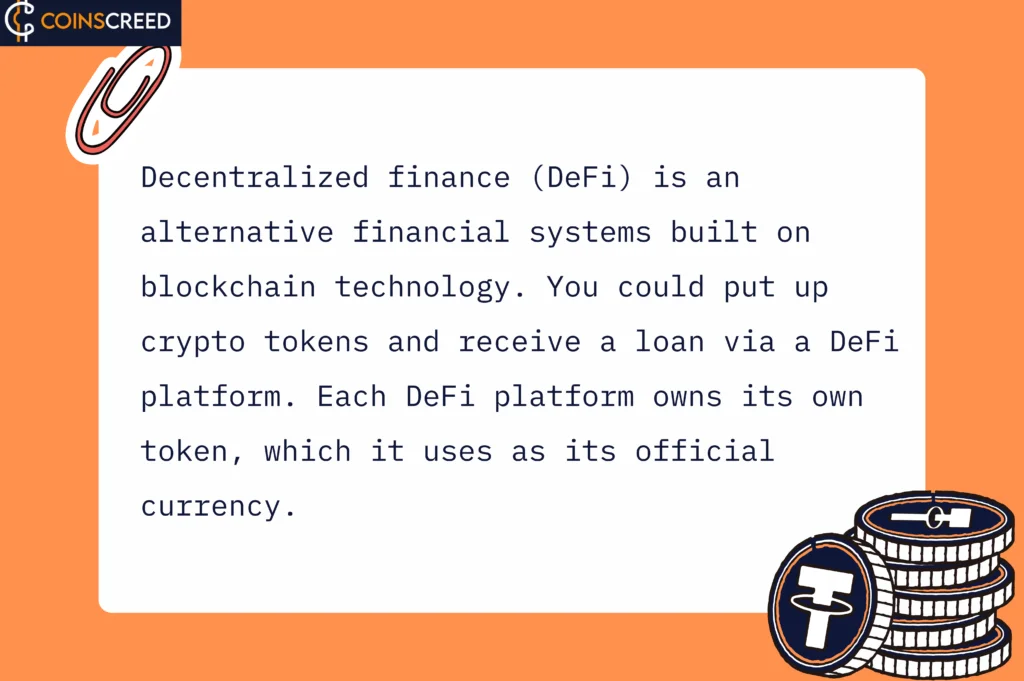
First time reading about crypto token?
You are not alone and this should not surprise you. Bitcoin rules the knowledge pool of crypto. From the headlines to the memes. Leaving other assets like crypto tokens to compete for mere mentions.
Some mistake crypto coins for tokens. And those are the lucky ones. Others go unnoticed.
This guide will focus on Crypto Tokens; how to identify them and their common uses.
What is a Crypto Token?
A crypto token is a cryptocurrency. This means it is virtual cash that operates within a database called blockchain — a unique space that stores data in units (blocks) that link.
Tokens, like Bitcoin (₿), are another denomination of crypto. It acts as an exchange for financial transactions.

Programs that become active whenever certain requirements are met power tokens. Smart Contracts are what these are. Parties in a smart contract are certain of the outcome without delay, as it automates the implementation of a prior agreement immediately.
We’ll be covering how to create crypto tokens, but you should also know how to design smart contracts that conform to specific token specifications.

Everyday uses for crypto tokens
You can use crypto tokens for a variety of purposes aside from a medium of exchange. Here are some of the most common applications for crypto tokens:
Non-fungible tokens:
A non-fungible token (NFT) is a crypto token that shows ownership of a digital asset. The token contains the owner’s information. NFTs are used to identify who owns a unique digital picture, GIF, or character in an internet game.
NFT holders can claim ownership rights over a digital or real-world asset. They can restrict the sharing of digital creations. They have also been used to issue limited quantities of digital artworks and sell unique virtual assets, such as rare items in a game.
Decentralized Finance Tokens:
Decentralized finance (DeFi) refers to alternative financial systems built on blockchain technology. You could, for example, put up crypto tokens and receive a loan via a DeFi platform. Each DeFi platform owns its own token, which it uses as its official money.

The recent development of cryptocurrency-based protocols, which aim to copy traditional financial-system functions like lending, saving, insurance, and trading, has created a new world. These protocols allow tokens to be issued that can perform many functions and you can trade or hold it as any other cryptocurrency.
Governance tokens:
A cryptocurrency token known as a governance token grants its owner voting privileges in a cryptocurrency project. These are specialized DeFi tokens that let owners have a say in how a protocol or app develops in the future.
Owners of tokens can submit and vote on ideas that affect the direction a particular cryptocurrency will go. You have more voting power the more tokens you possess.
Top crypto tokens
After defining crypto tokens, let’s look at some of the most popular ones:
- Tether: As an ERC20 token, Tether is present on the Ethereum network. Tether tokens are now accessible in Ethereum smart contracts or decentralized applications thanks to a more recent transport layer. It can also be transmitted to any Ethereum address because it is a regular ERC20 token. As a result of their peg to a fiat currency, they are known as stablecoins since they provide price stability.
- Shiba Inu: The popular memecoin Dogecoin (DOGE) has an Ethereum-based rival in the form of the Shiba Inu (SHIB) token. SHIB is purposely abundant, as opposed to Bitcoin, which has a one quadrillion total supply and is intended to be scarce.
- Chainlink: Tokens called Chainlink are used as payment for off-chain data preparation and computation by Chainlink network operators.
- Uniswap: This is a peer-to-peer market making made possible via a decentralized exchange. The symbol for the cryptocurrency Uniswap is (UNI). Users can trade cryptocurrencies without using a centralized third party thanks to the Uniswap platform. It is made up of two ERC-20 tokens.
- Cronos (CRO): The Crypto.com ecosystem’s utility token is called Cronos (CRO). CRO enables token holders to exchange crypto tokens for fiat at a discounted rate and can be used to pay platform fees or staked for a variety of advantages.
Crypto Tokens vs. Crypto Coins
A cryptocurrency coin is a type of digital money that frequently exists exclusively on its blockchain. It serves as a medium of exchange and a value store. The earning of coins through proof of stake or proof of work mining (PoS). Bitcoin (BTC), Ether (ETH), and Cardano are some examples (ADA)
For a decentralized project, a cryptocurrency token is created on an existing blockchain (usually Ethereum, the most popular blockchain for decentralised projects to build upon). A token might offer its owners platform-specific functionality or serve as an asset representation. Tokens can be used for usefulness, security, and governance. Examples include Uniswap, Very, Very Simple Finance, and Cronos (CRO).
Cryptocurrency coins have a native blockchain. BTC is the cryptocurrency used on the Bitcoin blockchain. ETH is used on the Ethereum blockchain. LTC is also used on the Litecoin blockchain. Similar to traditional currencies, these crypto coins are primarily intended to serve as a form of wealth storage and a medium of exchange. Because of this, cryptocurrency is another name for crypto coins.
The process by which coins are created is another one of their distinctive qualities. Cryptocurrency currencies are often won through a proof of stake (PoS) consensus process or mined using a proof of work (PoW) consensus mechanism. Crypto tokens are created utilizing blockchain technology, just like cryptocurrency currencies, but they aren’t actually part of a blockchain.
Instead, they are constructed on top of it, frequently making use of smart contracts to achieve a range of goals.Crypto tokens resemble assets or even deeds more than cryptocurrency coins, which are models of conventional money.
A cryptocurrency token may stand in for a portion of ownership in a DAO, a digital good or NFT, or even a tangible item. Crypto tokens are like currencies in that they may be bought, sold, and exchanged, but they are not a form of money.
To put it another way, crypto coins are more like dollars and cents, whereas crypto tokens are more like coupons or vouchers.
